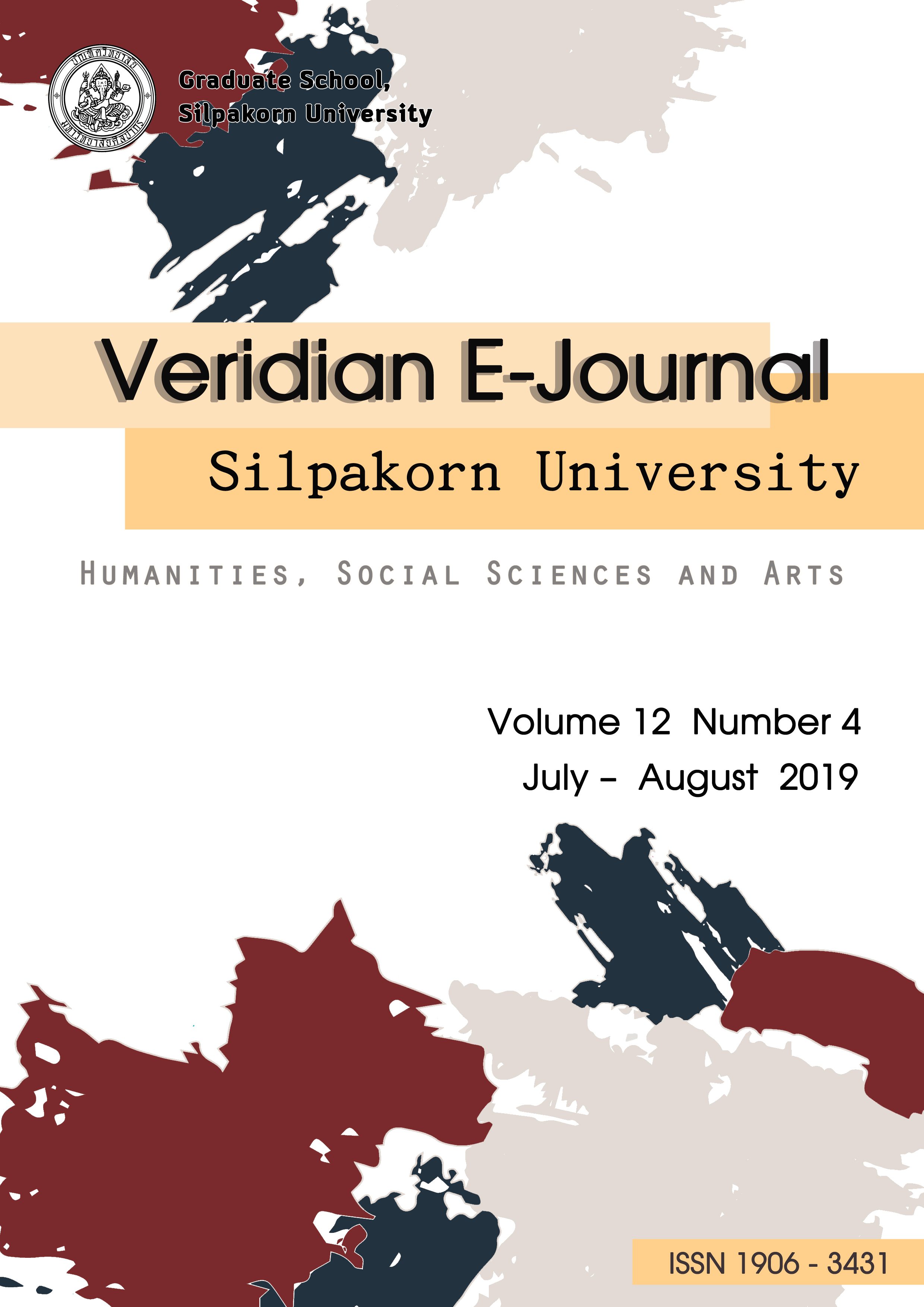การจัดกิจกรรมการเรียนรู้วรรณคดีไทยด้วยวิธีการสัมมนาตามแนวคิด Active Learning สำหรับนักเรียนชั้นมัธยมศึกษาตอนปลาย (The Management of Learning Activity for Thai Literature Study by Seminar Method Based on Active Learning for Senior Secondary Students)
Main Article Content
Abstract
บทความวิชาการนี้มีวัตถุประสงค์เพื่อเสนอแนะแนวทางการจัดกิจกรรมการเรียนรู้วรรณคดีไทยด้วยวิธีการสัมมนาตามแนวคิด Active Learning เป็นวิธีการที่ส่งเสริมให้ผู้เรียนเป็นประชากรในยุคศตวรรษที่ 21 อย่างสมบูรณ์ เนื่องจากกระบวนการสอนจะส่งเสริมให้นักเรียนแสวงหาความรู้ที่เกี่ยวกับวรรณคดีเรื่องนั้นจาก สื่อต่าง ๆ อันจะนำไปซึ่งการวิพากษ์ วิจารณ์ อภิปรายถกเถียง จนได้ข้อสรุปที่เป็นฉันทามติของการสัมมนาวรรณคดีเรื่องนั้น ๆ สำหรับแนวคิดในการจัดกิจกรรมการประกอบไปด้วยทฤษฎีต่าง ๆ ดังนี้ 1) หลักการจัดสัมมนา 2) แนวคิด Active Learning 3) ความสอดคล้องของแนวคิด Active Learning ในกระบวนการสัมมนา 4) การพัฒนาการจัดกิจกรรมการเรียนรู้วรรณคดีไทยด้วยวิธีสัมมนา จากแนวคิดดังกล่าวทำให้เกิดกระบวนการเรียนการสอนทั้ง 3 ขั้นตอน ได้แก่ 1) ขั้นเตรียมการสัมมนา 2) ขั้นดำเนินการสัมมนา 3) ขั้นประเมินผล การสัมมนา กิจกรรมทั้ง 3 ขั้นตอนช่วยส่งเสริมให้ผู้เรียนเกิดความรู้ความเข้าใจจากการปฏิบัติจริง อีกทั้งยังทำให้ผู้เรียนเกิดคุณลักษณะนิสัยการเป็นผู้ที่มุ่งแสวงหาความรู้และความจริง อันเป็นคุณสมบัติที่สำคัญของมนุษย์ในศตวรรษที่ 21
This paper article aimed for a proposal of the management of learning activity for Thai literature study by seminar method based on Active Learning which cultivates the learners to be the 21st century well-rounded citizens. The instruction process will enhance students to be eager for knowledge related to particular literature from various media which can lead to comment, review, debate and discussion, then result in consensus of the literature seminar. The theory concepts for instruction setting consist of 1) Seminar principles 2) Active Learning concepts 3) Application of Active Learning concepts in seminar process 4) Development learning activity’s management for Thai literature study by seminar method. According to these concepts, there are 3 steps which are; 1) Seminar preparation 2) Seminar operation 3) Seminar evaluation. All of these 3 steps help the learners to build the knowledge and understanding from real practice. It also helps the learners to create the habit of searching for the knowledge and the truth which is a vital characteristic of human in the 21st century.

